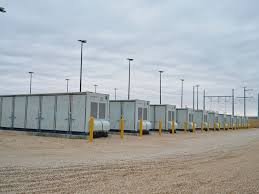NEW DELHI, April 23: Karnataka and Gujarat continue to lead the race to clean energy transition, but states like Jharkhand, Bihar, West Bengal and Uttar Pradesh need to step up efforts, according to a new report released on Tuesday.
The joint report by research organisation, Institute for Energy Economics and Financial Analysis (IEEFA), and clean energy think tank Ember evaluates the clean electricity transition preparedness at the sub-national level.
The report’s authors said Karnataka and Gujarat continue their strong performance across dimensions, effectively integrating renewable energy sources into their power sectors, making strong strides in decarbonisation.
But states like Jharkhand, Bihar, West Bengal and Uttar Pradesh need to improve. While these states are in the early stages of their transition, they now need to focus on increasing renewable energy deployment, enhancing short term market participation and strengthening their distribution companies.
The report launch coincides with a spell of intense heat wave sweeping parts of India, leading to the Ministry of Power preparing for a projected peak power demand of 260 gigawatts. Harsh summers also offer the chance to utilise more clean energy like solar power. Although, this requires preparedness of states to transition to clean sources of electricity.
“Cyclical weather conditions coupled with faster economic activity is pushing India’s peak electricity demand higher every year. While the central government is taking steps to integrate more renewable energy into the grid, states, too, need to be prepared to do so. Gauging sub-national progress now requires constant monitoring of several parameters at the state level. A purely national overview can often overshadow subtle intricacies at the state level, which may stymie the country’s electricity transition,” the report’s contributing author, Vibhuti Garg, Director, South Asia, IEEFA, said.
While the national-level progress towards electricity transition is progressing well, it is far more uneven at the state level.
“Some states have developed progressive steps, such as boosting decentralised renewable energy deployment, promoting solar pumps for agricultural needs, and enhancing storage solutions to ensure more renewable energy in their electricity systems. But, the transition to clean electricity is still in its infancy in many states.
“These states should look to accelerate efforts to access benefits of a transition to clean electricity and to ensure they are not left too far behind the better-performing states,” the report’s contributing author, Aditya Lolla, Asia Programme Director, Ember, said.
One of the striking findings from the analysis for the 2024 report is that several states are exhibiting preparedness to embrace electricity transition. They perform well in the “Readiness and Performance of the Power Ecosystem” and “Market Enablers” dimensions but need to improve in the “Decarbonisation” dimension.
“Delhi’s power system is well-prepared for decarbonisation, while Odisha has robust market enablers to support decarbonisation in the power sector. However, their actual decarbonisation progress so far does not match their strengths in these aspects, highlighting the importance of performing well in both dimensions to effectively achieve decarbonisation goals,” co-author Neshwin Rodrigues, Electricity Policy Analyst, Ember, said.
The report also notes that state-level decarbonisation can be further accelerated by strengthening the power ecosystem and having right enablers. Some states that are decarbonising well also lack the right market enablers, others struggle with the readiness of their power ecosystems.
Kerala, Haryana, Andhra Pradesh, Punjab and Maharashtra all exhibited considerable progress in certain aspects but also lower performance in other aspects. For example, Kerala and Punjab need to improve when it comes to market enablers for decarbonisation, while Andhra Pradesh and Maharashtra need to focus on the readiness of their power ecosystems, according to co-author Tanya Rana, Energy Analyst, IEEFA.
“Despite achieving relative success in decarbonising the sector thus far, states must address deficiencies in readiness and market enablers to sustain their momentum,” says Saloni Sachdeva Michael, Energy Specialist, India Clean Energy Transition, IEEFA.
The report recognises the considerable efforts that states are making towards transitioning to clean electricity and recommends some key steps to accelerate the pace of transition.
“We recommend the strengthening of state-level regulatory ecosystems. This not only ensures compliance but also promotes growth, data tracking and monitoring, and a conducive environment for business,” Michael said.
“India has formulated many central and state-level policy schemes to reinforce its goal of energy independence by supporting various reforms and regulatory interventions across the value chain. However, actual implementation has not been adequate and transparent,” she added.
The report also calls for a need to shift focus from national-level to state-level studies to understand the nuances of the electricity transition in India fully.
“Each state faces unique challenges in decarbonising its power system, necessitating tailored policy interventions. By tracking decarbonisation progress, assessing the power system’s readiness for transition, and monitoring the advancement of market enablers, state-specific challenges and potential interventions can be better understood,” Rodrigues said. (PTI)












